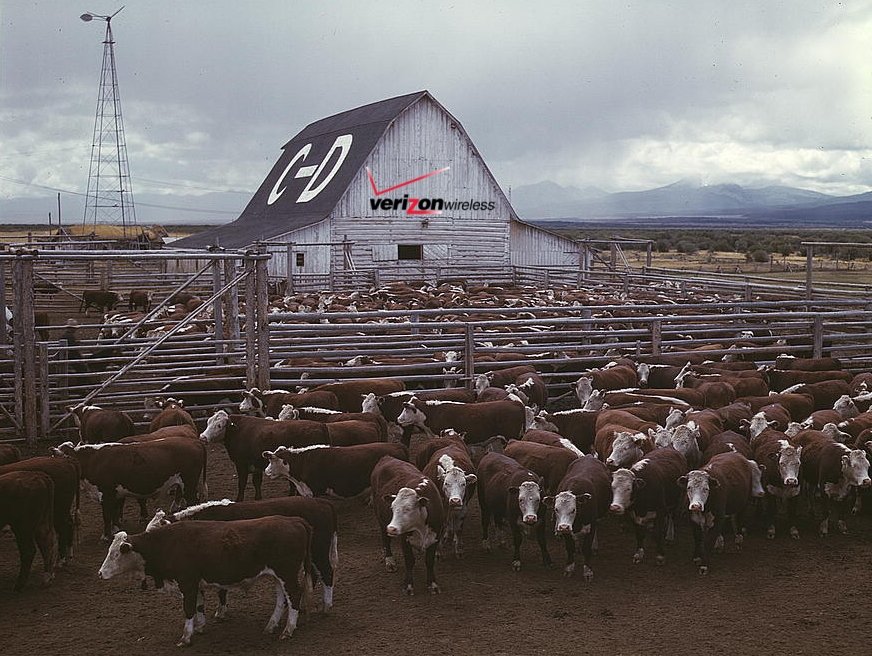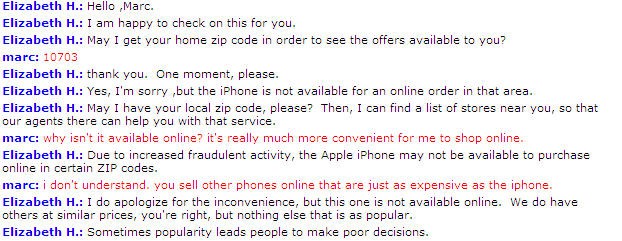 Verizon Wireless is expected to unveil three new data plans on January 18th, including a new smartphone-mandatory “unlimited broadband” 3G plan priced at $29.99 per month, according to documents obtained by Broadband Reports.
Verizon Wireless is expected to unveil three new data plans on January 18th, including a new smartphone-mandatory “unlimited broadband” 3G plan priced at $29.99 per month, according to documents obtained by Broadband Reports.
The documents, provided by a Verizon Wireless employee, show the company is moving towards mandating all of their customers select some sort of data plan as part of their monthly service. But unlike some wireless providers that leave options open to customers, Verizon wants to herd customers into data plans based on the types of phones they use:
- Simple Phones: Basic handsets that are designed for making and receiving phone calls and sending quick text messages from a numeric keypad, typically at older network standard speeds;
- 3G Multimedia: 3G-capable phones that may include a simple keyboard, and are designed for simpler text messaging and occasional data access;
- 3G Smartphones: Blackberry, Android, Windows-capable, and eventually the iPhone all qualify for this classification.
Verizon Wireless formerly offered a paltry 25MB package for $9.99 with a 50 cents per megabyte overlimit fee and a stingy 75MB package for $19.99 per month with a 30 cents per megabyte overlimit fee. These might be suitable for someone trying to navigate a mobile web browser on an older generation phone from a numeric keyboard, but were priced unattractively for those with more advanced phones.
The 75MB package appears to be history after January 18th, but the 25MB package will remain with a reduced overlimit fee of 20 cents per megabyte (that’s an incredible $200 per gigabyte) . Customers who don’t want -any- data plan for their basic wireless phone will be forced onto Verizon’s “pay as you go” plan, which charges $1.99 per megabyte. It’s this plan that subjects customers to those $1.99 mysterious “data charges” on their bill, caused when a customer invokes the phone’s web browser (intentionally or otherwise, if you believe customers.)
Customers who don’t own smartphones and don’t use their phones to access many data services will find themselves being corralled into one of Verizon’s new data plans, whether they like it or not, once they try and renew their contract or make “certain account changes” under their existing contract. If you’re a smartphone user, your choice will be the $29.99 unlimited data plan or the $29.99 unlimited data plan. In other words, smartphone customers don’t get a choice. Only owners of more basic phones will be able to choose from overpriced “pay as you go” service, a paltry 25MB offering, or what the company will upsell as the “best value” — the $29.99 unlimited plan.
“Even some basic phones such as the LG VX8360 will require data plans starting the 18th,” says Broadband Reports‘ tipster. Some examples of 3G Multimedia phones: LG Chocolate Touch, LG enV3, LG enV Touch, LG VX8360, Motorola Entice, Motorola Rival, Samsung Rogue, Samsung Alias2 and Nokia Twist.
The launch of an unlimited data plan on Verizon Wireless’ 3G network will make Apple happy. The iPhone manufacturer has reportedly advocated generous data plans for iPhone customers who find themselves required to purchase plans for both voice calling and data with AT&T. If the iPhone’s arrival on Verizon Wireless’ network is imminent this summer, having an unlimited data plan available to customers would make sense.
Although the fine print isn’t available to us, Karl Bode at Broadband Reports notes the documents he’s seen indicate no hidden usage cap, like AT&T’s formerly advertised “unlimited” plans that were limited to 5GB in the fine print.
Broadband Reports ran an exclusive story this morning breaking the news about Verizon's new data plans.
Still, for customers pushed into purchasing a data plan they may not want, it’s another case of Internet Overcharging. That’s particularly true with Verizon, which claims to be a proponent of “paying for what you use,” yet still doesn’t offer all of their customers that option. Instead, customers who don’t want to pony up $29.99 a month (or don’t have to because they don’t own a smartphone) are stuck paying for overpriced “pay as you go” plans or a paltry 25MB plan priced not to sell. Even their “unlimited” plan may not last for long. As Verizon Wireless works towards their 4G network launch, unlimited pricing may never be a part of it.
The Verizon Wireless documents explain what’s really happening here when it instructs employees pushing data plans to up-sell customers: “think of how dissatisfied they would be if they received their bill with excessive Pay As You Go charges!” That is a powerful tool to motivate customers to choose a more expensive plan they may not need or want, just to protect themselves from the nasty surprise of an enormous bill at the end of the month.
With the evolving wireless phone marketplace now opening up new options for consumers to bypass the wireless company’s own products and services, overcharging consumers for accessing competitors’ products on their network guarantees a nice payday for Verizon Wireless no matter how you use your phone.
It’s why year after year, despite an increasing number of minutes thrown into your plan’s bucket, your cell phone bill never seems to actually decrease. After all of the additional add-ons, surcharges, and fees attached to the bill, it has become easier than ever to approach $100 a month for cell phone service in the United States.


 Subscribe
Subscribe









